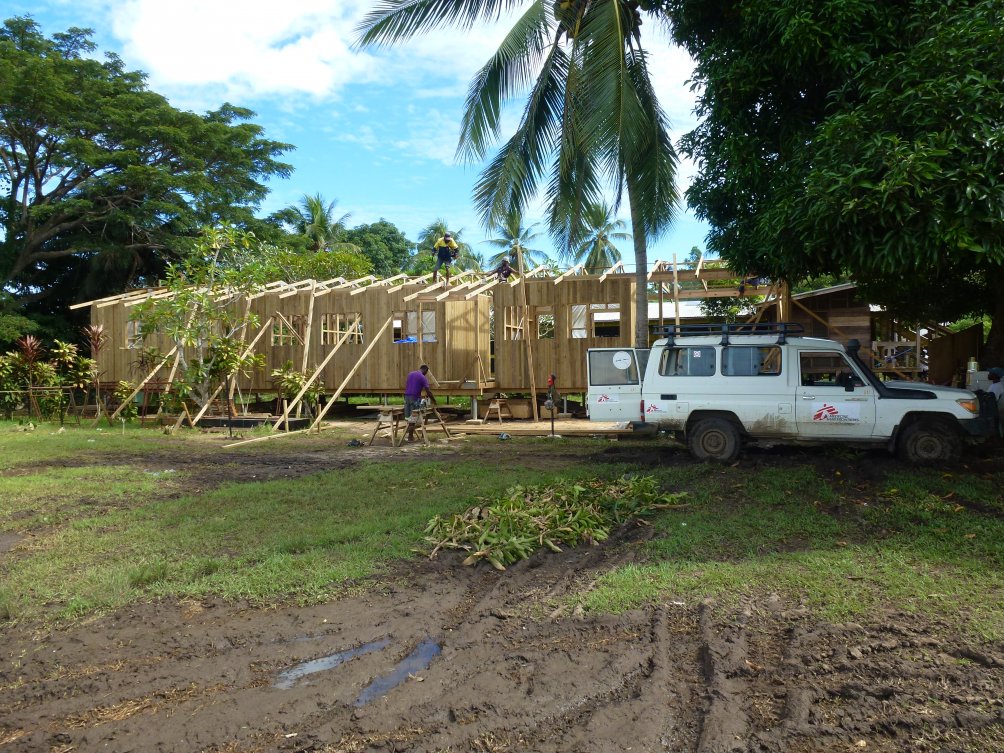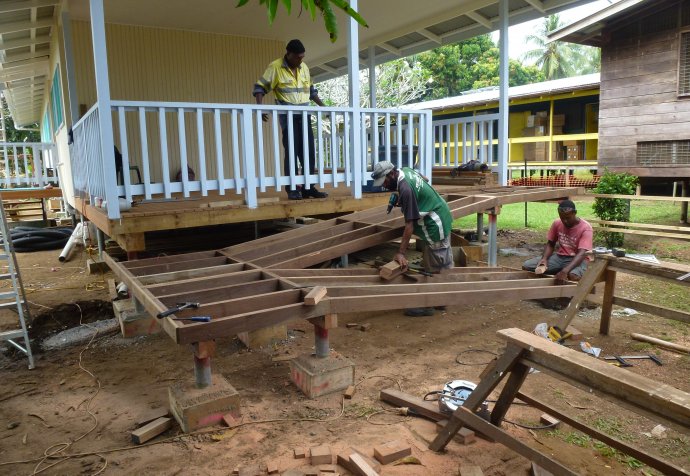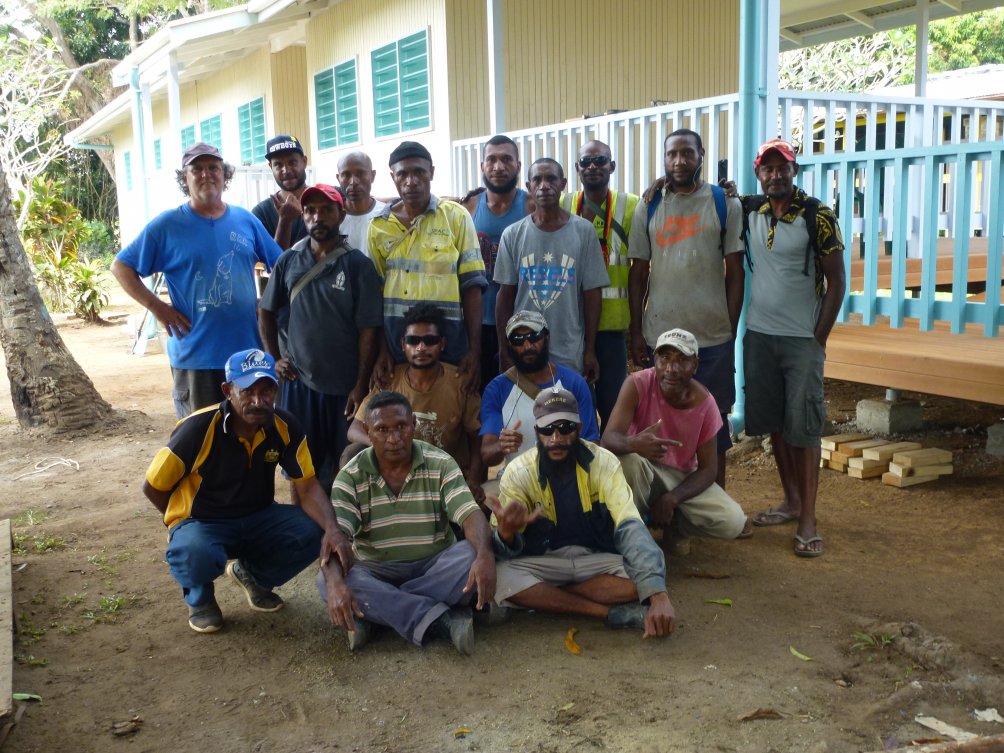Quick Summary
- MSF has been treating tuberculosis in Gulf province, Papua New Guinea, since 2014.
- Australian field worker Jeff Fischer oversaw the construction of a new medical unit in the town of Malalaua, east of Kerema, building a structure with an infection-controlled environment and more space to treat patients.
- The project allowed MSF to establish good relationships with tradesmen and labourers in the local community.
MSF runs its tuberculosis (TB) program in two locations in Papua New Guinea (PNG) – one in Port Moresby with outreach activities to surrounding districts, and one in Kerema, Gulf province, which is 260 km west of Port Moresby. Outreach activities from Kerema are very difficult due to the remoteness of villages, challenging terrain and limited transport options to these villages. There are no roads to the more isolated locations and the MSF boat enables access to a couple of outreach centres along the coast. Local 'treatment supporters' support MSF activities by following the wellbeing of patients living close to their house.




